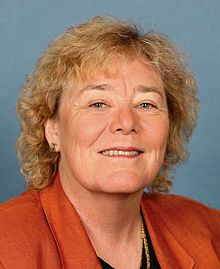 H.R. 3261 – Stopping Online Piracy Act (SOPA), recently introduced in the House by Lamar Smith, has received criticism from Members of Congress, Internet Service Providers, Library Associations, and civil society groups. Initial reactions from Public Knowledge, the Electronic Frontier Foundation, and the Center for Democracy and Technology are here. Below are highlights from more recent warnings about the legislation.
H.R. 3261 – Stopping Online Piracy Act (SOPA), recently introduced in the House by Lamar Smith, has received criticism from Members of Congress, Internet Service Providers, Library Associations, and civil society groups. Initial reactions from Public Knowledge, the Electronic Frontier Foundation, and the Center for Democracy and Technology are here. Below are highlights from more recent warnings about the legislation.
Representatives Zoe Lofgren and Darrell Issa wrote an open letter to the Members of the House Judiciary Committee warning that the H.R. 3261 “would give the government sweeping new powers to order Internet Service Providers to implement various filtering technologies on their networks. It would also create new forms of private legal action against websites – cutting them off from payment and advertising providers by default, without any court review, upon a complaint from any copyright owner, even one whose work is not necessarily being infringed.” They note that “online innovation and commerce” accounted for 15% of GDP grown from 2004-2009 and warn against putting their industries at risk through SOPA.
David Ulevich, CEO of internet security company OpenDNS, has written an open letter to all Members of Congress calling the legislation dangerous as currently drafted for three main reasons: 1) it will be overbroad, and “there is no way to censor only illegal content without harming legitimate uses on sites as well,” 2) it will create a firewall to “censor” websites that will set a bad example for the rest of the world, “including countries we criticize for the same behavior,” and 3, it will “burden companies with an onerous level of liability for all user-generated content.” Ulevitch writes that if SOPA had been in place when he started OpenDNS, he likely would have started it outside of the United States.
An open letter to the leadership of the House Judiciary Committee from the American Library Association, the Association of Research Libraries, and the Association of College & Research Libraries focus on two provisions of the legislation. The letter states that “Section 201(c) contains a rule of construction concerning the term ‘willful’ that could substantially expand the range of activity considered criminal copyright infringement” and that “Section 201 extends criminal sanctions for public performances such as streaming, but does so in a manner far broader than similar legislation in the Senate.” Taken together, these two provisions could “threaten important library and educational activities.”
Others have called attention to Section 205 of the legislation, which requires various executive branch agencies to work with foreign governments to strengthen IP enforcement, and to work in-country with IP owners who feel their rights are not being adequately enforced. Knowledge Ecology International Director James Love points out that SOPA “creates a new bureaucracy to deal with very broadly defined trade related intellectual property rights issues, including those identified in the annual USTR Special 301 report.” He notes that this provision of the legislation covers a scope of IP far broader than online piracy: “The bill defines intellectual property rights as ‘the rights of holders of copyrights, patents, trademarks, other forms of intellectual property, and trade secrets’.”
In a post on Techdirt, Mike Masnick calls Section 205 “the creation of the entertainment industry’s own copyright police force within the diplomatic core.”




